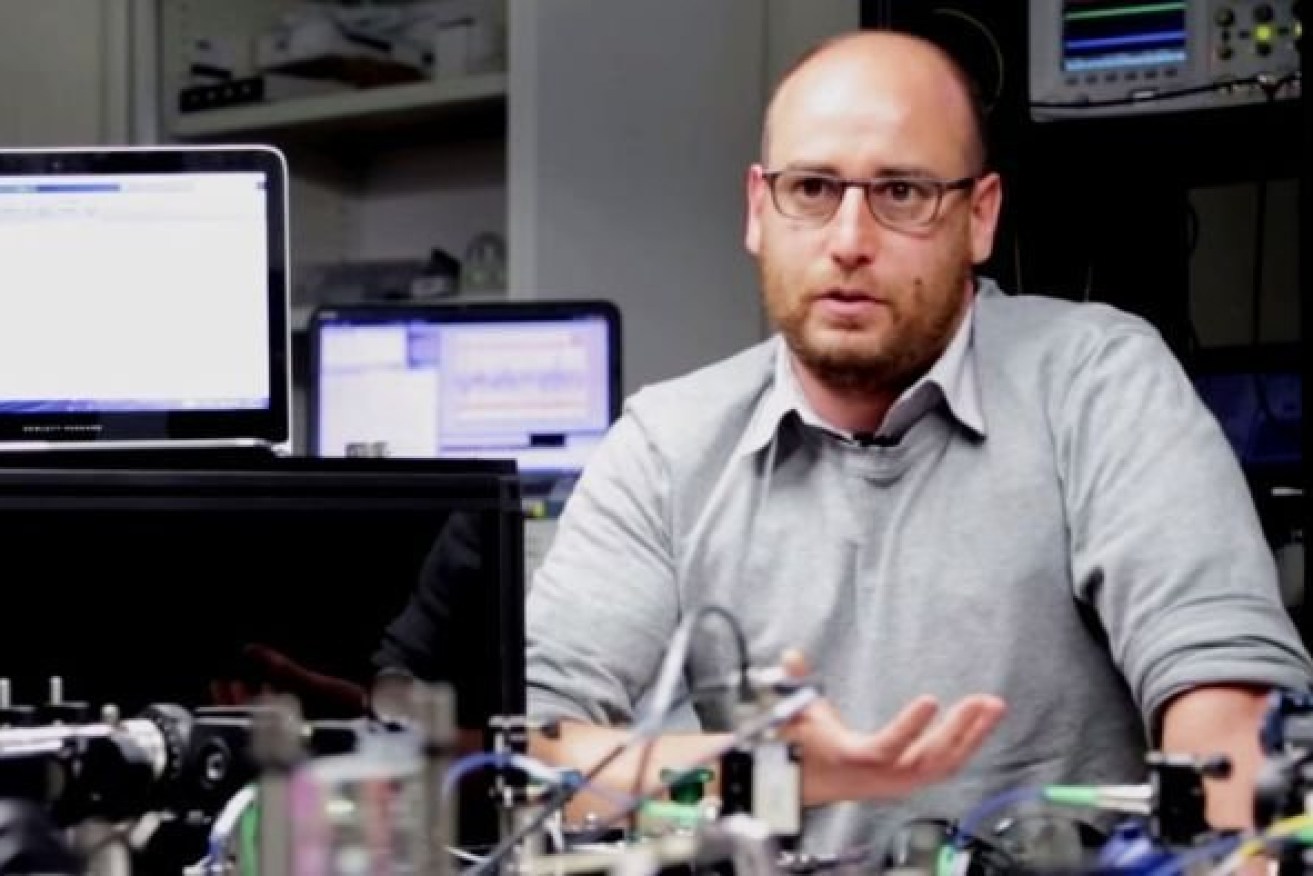New hope in cancer fight

ABC
A laser device as sensitive as a dog’s nose might be able to detect disease, including cancer, from a simple breath test in the future.
Adelaide University researchers have been working on breath analysis using an optical frequency comb – a laser device which won a Nobel prize a decade ago.
Researcher Dr James Anstie said they hoped to have a working prototype within three years and a commercial breath analysis device within five years.
• The cancer cards to send when words fail you
• ‘Cancer time bomb’ lurks in our workplaces
• Laughing at cancer, one Naked Tuesday at a time
“We’re very confident that it will be up to the task,” he told 891 ABC Adelaide.
“It’s a broad screening test. You can go to a clinic or a hospital and breathe into a device and it tells you a whole range of things that might be worth looking into.”
Dr Anstie said current disease detection methods such as blood tests could prove expensive and doctors tended to use them for patients where there was a firm likelihood of disease being found.
Non-invasive test and quick result promised
He expressed confidence the laser device under development in Adelaide would prove an effective and a popular choice for doctors and their patients in the future.
“It’s completely non-invasive, it’s not painful, [requires] no injections and they can tell you, maybe in only a general sense, but straight away if you’ve got something that’s worth looking at,” he said.
Patients would breathe into bag or the machine directly and that breath would interact with the complex laser in a special chamber.
The researchers said the focus of their current work was ensuring the device was highly sensitive and accurate.
“We have to ensure it only tells you what might be wrong with you, not what you’ve eaten, what you’ve been breathing in the last few minutes,” Dr Anstie said.
“That’s a very large part of the research that needs to be addressed – how do you make these tests reliable … so that we can more closely approach the sensitivity of a dog’s nose?”
As well as cancers, the team hopes the breath test will diagnose asthma, diabetes, gut infections and other ailments.
Potential non-medical applications might be measuring trace gases, such as atmospheric carbon dioxide, or detecting impurities in natural gas.








